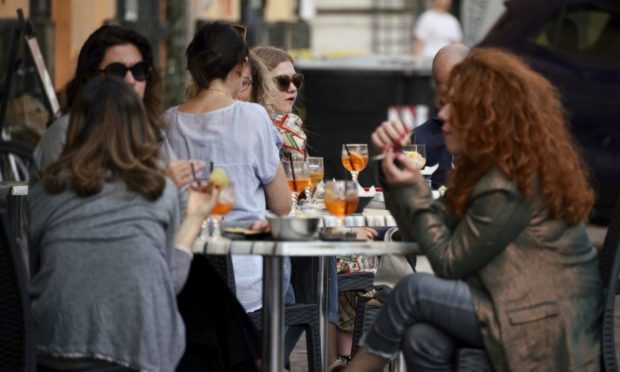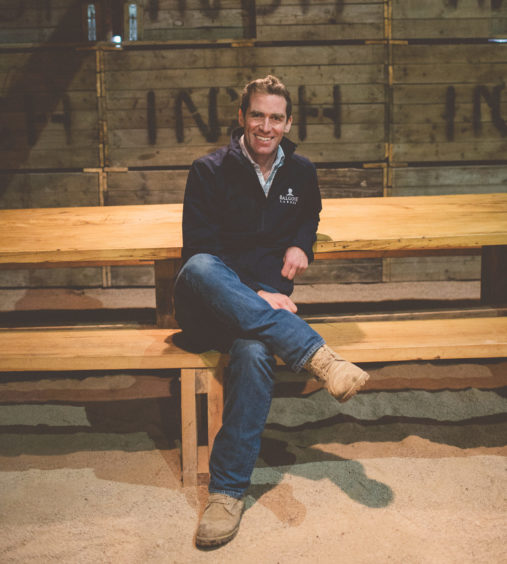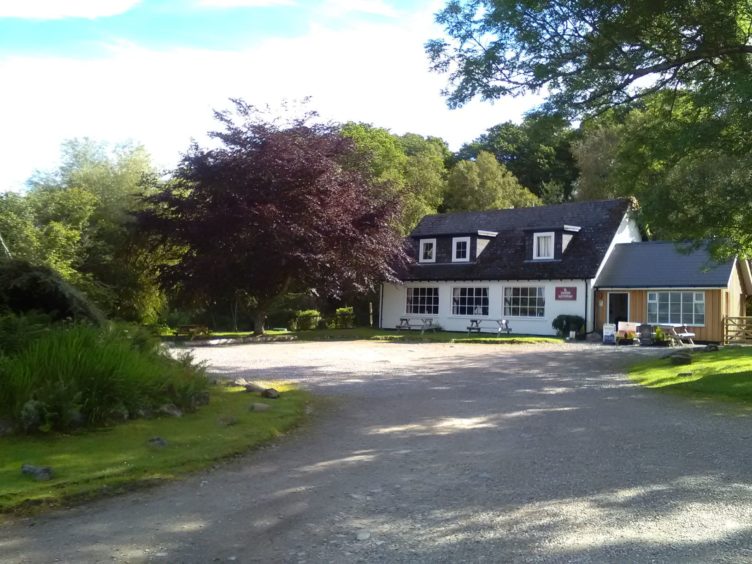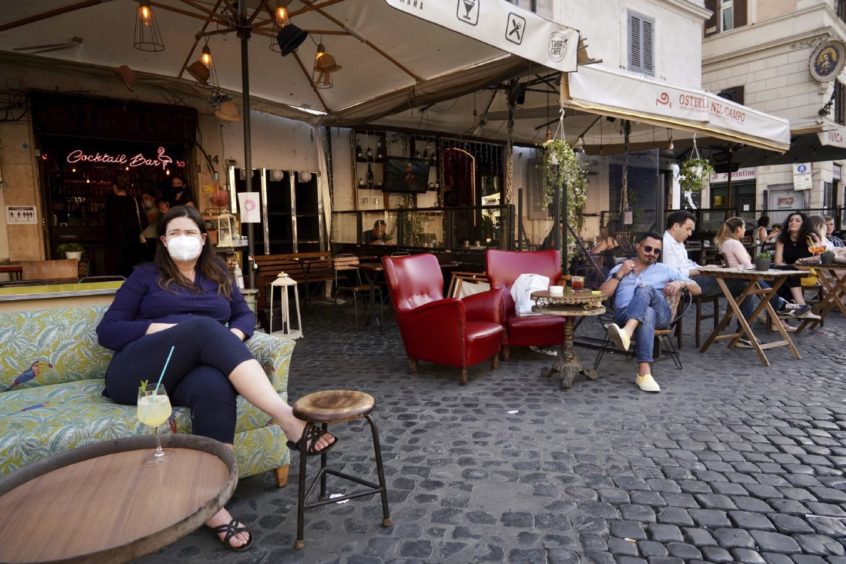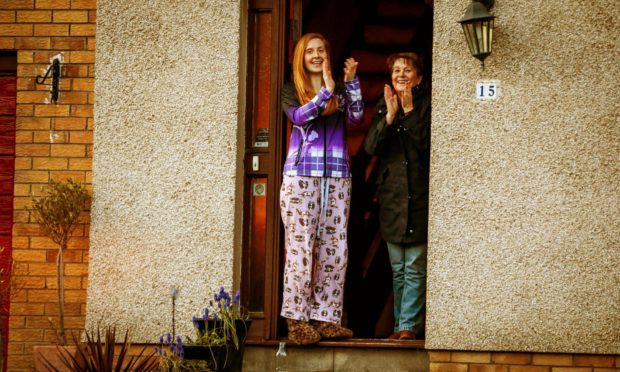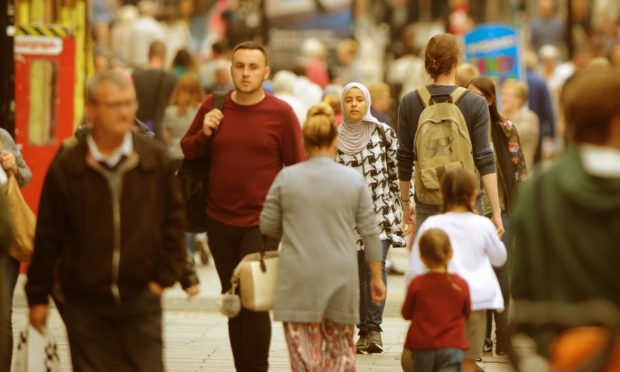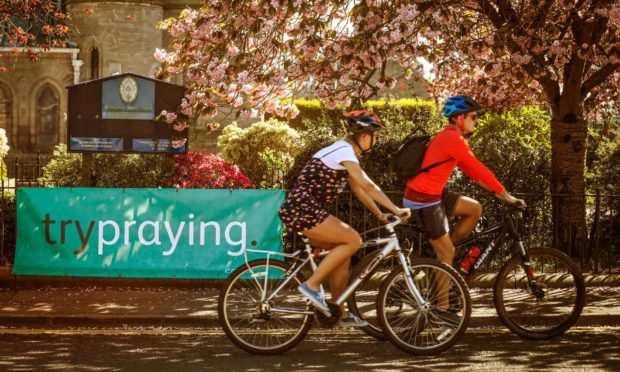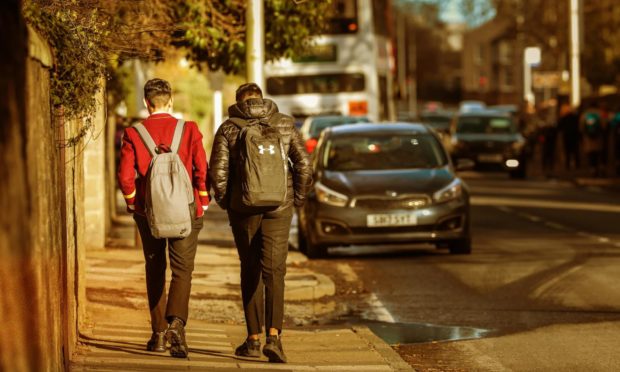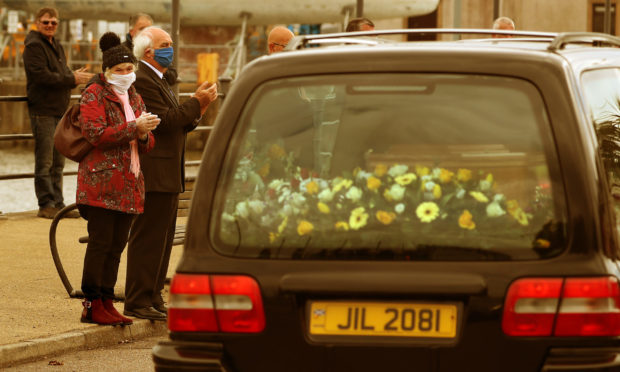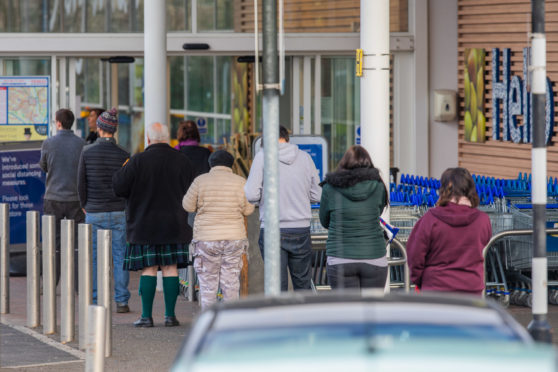Clare Johnston hears from industry voices, including former MasterChef judge John Benson-Smith, about the measures food hospitality businesses are considering – and whether they can survive social distancing.
In recent years, eating out regularly has become commonplace for many Scots who have become savvy to deals and offers to get the most for their money.

But the ferocity of competition and the downward pressure on profits meant that even before the coronavirus pandemic, restaurants were experiencing a tough time.
The number of restaurants going under in 2018 across Scotland was the worst on record, analysts reported, with failures rising from 73 in 2017, to 136 the following year. The popularity of delivery services and discount deals were among the factors cited.
And with so many businesses under pressure before the pandemic, food consultant and former BBC MasterChef judge, John Benson-Smith, believes a significant number will be hanging by a thread.
He said: “The restaurant industry generally was facing a very tough time. For the good, the bad and the evils of two-for-the-price-of one [deals] and vouchers, you were in the situation where your fixed and variables, staff and overheads… every single thing was driving up your costs, while your customer wants to pay less and wants it faster, and cleaner and tidier. The end result was if you took a £1 you’d be lucky if you put 7p from it in your pocket.”
Brexit had thrown up uncertainties over tariffs and availability of seasonal workers. Now he fears the pandemic may be the straw that broke the camel’s back.
“A lot [of restaurants] had been dragged into this horrible position… and were teetering on the edge of collapse. You add Covid-19 in and you have a real mess.”
The enforced closures in March mean many food hospitality businesses closed their doors until further notice, though a significant number are attempting to keep some form of cashflow going by offering a delivery service.
It is not known when, in Scotland, restaurants, bars and cafes will reopen – only that this will happen under a second phase of lockdown-easing measures when small retail units and outdoor markets will be allowed to reopen with physical distancing in place, and pubs, restaurants and bars will be able to resume food and drink services in open outdoor spaces.
Behind the scenes, restaurant owners are starting to look at their layouts, the amount of outdoor space available to them (if any), and the number of covers they could provide while practicing social distancing.
Earlier this month, prominent figures from Scotland’s food and drink industry lobbied the Scottish Government to ask that the furlough scheme announced by the Chancellor, Rishi Sunak, in March be extended for hospitality staff beyond October, that business rates relief should also be extended, that a new development fund should be created to support hospitality businesses, and that a “Covid Code” be put in place for businesses that would reassure anxious customers that safety measures were in place.
The industry has since voiced its disappointment at a subsequent announcement by the Scottish Economy Secretary that grants will not be extended to businesses occupying premises with a r
The enforced closures in March mean many food hospitality businesses closed their doors until further notice, though a significant number are attempting to keep some form of cashflow going by offering a delivery service.
It is not known when, in Scotland, restaurants, bars and cafes will reopen – only that this will happen under a second phase of lockdown-easing measures when small retail units and outdoor markets will be allowed to reopen with physical distancing in place, and pubs, restaurants and bars will be able to resume food and drink services in open outdoor spaces.
Behind the scenes, restaurant owners are starting to look at their layouts, the amount of outdoor space available to them (if any), and the number of covers they could provide while practicing social distancing.
Earlier this month, prominent figures from Scotland’s food and drink industry lobbied the Scottish Government to ask that the furlough scheme announced by the Chancellor, Rishi Sunak, in March be extended for hospitality staff beyond October, that business rates relief should also be extended, that a new development fund should be created to support hospitality businesses, and that a “Covid Code” be put in place for businesses that would reassure anxious customers that safety measures were in place.
The industry has since voiced its disappointment at a subsequent announcement by the Scottish Economy Secretary that grants will not be extended to businesses occupying premises with a rateable value above £51k.
Planning for the unknown
The number of variables currently at play during the pandemic makes it difficult to plan and so, says John Benson-Smith, restaurant owners have to look at every eventuality.
“You’ve either got to be a sheep or a wolf. The smart ones are the wolves. They’re saying, ‘Get me the architect’s plan, get me a drawing. I’m not going to wait to find out whether it’s going to be one metre or two metres or three metres [for social distancing], I’m going to work on the basis of 3, 2 and 1, so I’m going to get my diagram and position tables on my plan. I’m reading every day and I’m finding out and I’m planning. In my kitchen I can use this many chefs, and I’m going to use tape on the floor… what I’m saying is, half the time I don’t get what people are waiting for.
“If you haven’t thought through every single tiny detail you’re going to be in a mess. What it’s essential for businesses to do is practice, practice, practice, train, train, train. It’s not, go back to your restaurant in the morning, hope it works and open up at five.”
Will Docker, chairman of Food From Fife – a membership organisation set up to promote food and drink businesses across the region – and co-owner of Balgove Larder, a farm with shop, butchery steakhouse and café, near St Andrews, agrees that survival likely depends on taking the initiative.
He said: “We have a steak restaurant and café which are two thirds of our business and which have been severely affected by lockdown and the Covid storm. The second the lockdown came into place we furloughed the majority of the staff in both those areas. Having adapted the business, we now do a lot of online deliveries having adapted the business and that’s been a success.
“The farm shop has remained open and we’ve had social distancing in place so we already have some experience of doing that which has been invaluable. As of Friday, in line with the First Minister’s easing of the lockdown we’re going to offer a BBQ takeaway for this weekend. That’s going to be outside. We’re able to adapt and evolve our outdoor space because we have the farm and access to materials. We’re looking at something that ensures customer and staff safety whilst being sustainable.
“Before the pandemic the definition of a business was something profitable and sustainable, now if you’re lucky enough to open and have cashflow that’s the new definition. Profit is something we’re dreaming of.
“We’re going to be operating with huge constraints, but we have to try and create some interest and atmosphere and produce an experience that people can enjoy. You’ve got to be thinking out of the box, and also looking 360 degrees at all the other things customers will be thinking about.”
With this in mind, Will is already investing in equipment and technology.
“We bulk-bought early on and have supplies of hand sanitiser for staff and customers to use. We put up a lot of notices to try our best to educate customers and the vast majority of customers have been responsible. We put up some Perspex screens at the till and we’re looking at using an app for customers to scan and place an order via their phone and the food is then delivered to their table to reduce the face-to-face interaction with customers and maintain social distancing.
“All businesses in hospitality and tourism need the summer trade to get them through winter so we’re desperate to get some business under our belts in the coming months. We’re optimistic things will change quite quickly, we’re seeing that bounce-back to normality in other countries, but we generally need to see positivity.
“We’re hoping we’ll get some clear, concise messages from Government regarding the reopening and hopefully it will be from July onwards. We have supplies of PPE for staff – visors and face masks – but we’re not going to insist on it unless it becomes law.
“There is no alternative other than to be positive. If you dwell on it, it’s a doomsday scenario for our industry. A small business can be very nimble – it takes a lot longer for a large business to get the wheels turning. Our supply chain is really strong, we grow and rear much of what we offer here on the farm so we’re not reliant on imports, thankfully, but it’s definitely worrying times. We’re working phenomenally hard to bounce back as quickly as we can.”
John McGale is the owner of Carron Restaurant in Strathcarron, Wester Ross. The bulk of his custom comes from passing trade in the form of tourists travelling the NC500 route or touring the Highlands.
He and his wife – who took over the business in 2015 – are hoping travel restrictions will be able to be eased sooner rather than later.
He said: “We’re in a good spot here but we’re open to any sensitivities around transport. We’ve built the business up over the last five years. We’ve extended it and progressed year on year.
“At the moment we have 42 covers, so it looks like we’ll have to half it [due to social distancing restrictions] and have 22 covers. We can operate that well but will it be enough to sustain all the team? We live above and work in the business, so we can operate a small business, but we now have a good team and it’s a bit of a worry. In winter there’s myself, my wife and the chef, the core three, with two who work part-time. From March/April it goes up to eight altogether.”
And while John is trying to look at every eventuality, without knowing the parameters under which they can operate, it’s hard to plan the detail.
“It’s a horrible time. We do have outdoor space and I’ve been working on the garden for the last eight to 10 weeks. We invested in a summer house gazebo which I managed to get in before this happened so it would give us space for about eight people and we have six to seven garden benches. It’ll give us extra space, but how do you get the orders? Do I get an electronic ordering system where people order from the table, which would be brilliant for socially distancing? Do we get people to come to the counter so we can control it and have places for people to order?
“I worry about the toilets as well, so I was thinking of getting a big sign so they know when someone’s in and one is out. We’ll have sanitary stations, one at door, one at counter, one at toilets so people have the chance to sanitise their hands so there’ll be investment in hygiene.”
As a member of representative body the Scottish Tourism Alliance (STA), John says he receives frequent updates which keep him abreast of the latest developments.
He added: “We get fantastic feedback from the STA. Everything’s brought in through them and they have an ear to government. The Scottish Tourism Emergency Response Group [set up to co-ordinate the tourism industry’s response to the pandemic] are working on an action plan, a blueprint to give you a safe way to open and operate so that’s about two weeks off.
“At the moment we don’t know whether to buy screens or other equipment. I did buy a device that sits on the counter with a Perspex screen around A5 size with two hands on – green and red – and it flashes red if someone comes too close to the counter. It’s all those sorts of things. It’s a guessing point right now though so we await the blueprint. We’ll have to put money into it, but at the moment we’re running out so we’ll have to go into our own savings.”
When restaurants are allowed to open their doors to diners, it will be a question of wait-and-see when it comes to the numbers who feel comfortable enough to eat outside of the home.
A pre-pandemic survey of 2,000 UK adults found the average person dines out at least three times a month, each spending on average £695.76 per year, equating to 3% of the average take-home salary. Now the challenge is to win them back, something John Benson-Smith believes is going to take both creativity and sheer hard work.
“It’s a very specialist thing restaurants. You’ve basically got one style of service, and what Covid-19 has taught us is let’s be food makers. Do we really care if [the food] goes out of the window and into the back of your car, or if someone delivers it to your house on the back of a bicycle? We should be thinking, ‘I’m a great food maker, let me push it in seven directions.’
“What probably is going to happen now with Covid is every single person will have to perspire and put an apron on. It’s going to go back to the sweat and probably some of the fun.
“There’s a lot of cooking going on at home that never used to happen. We’ve reinvented dining at home so that’s the new competitor. ‘I’m staying at home, I will be safe, I’m not going to have a plastic screen and funny goggles, I’ll eat when I like it how I like it and I’ll enjoy it.’
“Restaurants will have to be smarter. I love them all, but probably the animal was too big and too fat and too slow and it needed to reinvent itself. There’s got to be a rethink.”
